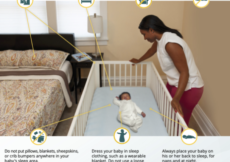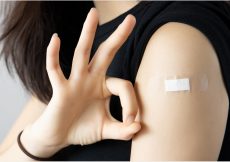A new international study offers a clearer picture of the impact of COVID-19 infection and the risk of severe outcomes on young people around the world.
The study was co-led by a team of researchers from the University of Calgary’s Cumming School of Medicine (CSM), Ann & Robert H. Lurie Children’s Hospital of Chicago, and University of California-Davis Medical Center. It followed more than 10,300 children at 41 emergency departments in 10 countries including Canada and the United States, Italy, Spain and Australia.
Researchers followed more than 3,200 children who visited hospital emergency departments and tested positive for COVID-19. Approximately three percent (107 total) of those diagnosed with COVID-19 experienced severe outcomes within two weeks of their visit to an emergency room. In addition, 23 percent (735 total), were hospitalized for treatment. Severe outcomes included cardiac or cardiovascular complications, such as myocarditis (inflammation of the heart), as well as neurologic, respiratory, or infectious problems. Four children died. The study was published in JAMA Network Open.
The study sought to quantify the frequency of and risk factors for severe outcomes in children with COVID-19. We found that older age, having a pre-existing chronic condition and symptom duration were important risk factors for severe outcomes.”
Dr. Stephen Freedman, MD, study co-lead, pediatrician and professor at the CSM
Researchers also found children deemed healthy at an initial emergency department visit rarely deteriorated significantly after the first visit.
“Fortunately, the risk of developing severe disease in children with COVID-19 discharged from the emergency department is very low,” says study co-lead Dr. Todd Florin, MD, MSCE, director of Research in Emergency Medicine at Ann & Robert H. Lurie Children’s Hospital of Chicago and associate professor of Pediatrics at Northwestern University Feinberg School of Medicine. “Our findings can provide reassurance to parents and clinicians for children well enough to be managed in the community, while also providing important insights on which children may be at particular risk for severe outcomes.”
Although asthma has previously been suggested as a risk factor for severe outcome, this study was not able to confirm a link. It also did not find that very young infants were at a higher risk for severe outcomes.
“With emergency departments across the world seeing an influx of patients due to the COVID-19 pandemic and stressing capacity, this study will help address the surge by providing an estimate of the risk among pediatric COVID-19 patients screened in an emergency department,” said Dr. Nathan Kuppermann, MD, MPH, chair of Emergency Medicine at University of California Davis Medical Center and co-lead of the study. “It will support emergency physicians triage of pediatric patients more efficiently by knowing who has risk factors for severe outcomes and focus advanced level care to those who do.”
The study occurred within the Pediatric Emergency Research Network, a global consortium of the world’s major pediatric emergency care research networks. It received support from the Canadian Institutes of Health Research, Alberta Innovates, Alberta Health Services and the University of Calgary. It also received COVID grant funding from the University of California Davis, Cincinnati Children’s Hospital Medical Center and Ann and Robert H. Lurie Children’s Hospital of Chicago. Dr. Anna Funk, PhD, an epidemiologist and UCalgary postdoctoral fellow, was lead author of the study.
“There are no specific evidence-based treatments and therapies for children at this time and detailed research data describing outcomes in young people with COVID-19 has been lacking, so this study offers important insights that we believe will be helpful into front-line care providers treating children with COVID-19,” adds Freedman.
Source:
Journal reference:
Funk, A.C., et al. (2022) Outcomes of SARS-CoV-2–Positive Youths Tested in Emergency Departments The Global PERN–COVID-19 Study. Jama Network Open. doi.org/10.1001/jamanetworkopen.2021.42322.



































